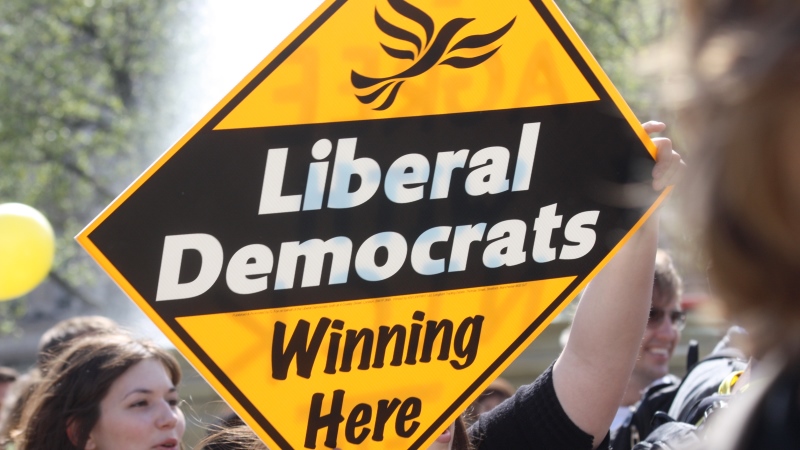How do you solve a problem like Umunna?
Change UK have already split. We knew it was coming. But the formal breaking away of more than half of their MPs has raised the question of whether the splitters will defect to the Lib Dems.
Some would fit naturally into the party (Allen, Wollaston, Berger) if they wanted to come. To me, it is a no-brainer that they defect. This is because:
(a) I believe most of them are fundamentally liberals, but have just never described themselves as that due to prior party loyalties and whips;
(b) We shouldn’t turn down the prospect of a swathe of new MPs, increasing our voice in the media, in Parliament, and amplifying our message that we are the home for liberal, progressive internationalists in modern politics
(c) There is a serious prospect of our becoming one of the main parties, but this only happens under FPTP if you build broader coalitions within your party, which means ideological purity will lead to our failure.
Others would face some more serious ideological difficulties (Smith, Shuker). Serious conversations would need to be had about their positions, particularly Shuker’s, whose religion influences his politics away from the social liberal policies most Lib Dems get particularly fired up about.
But that leaves one problem case: Chuka Umunna. Some say he shows authoritarian tendencies; others say he is more liberal than his voting record suggests. This is a good opportunity to discuss an important point for the near future: where is the line between ideological purity and maintaining our identity as a liberal party?
To be very clear, I don’t want the Lib Dems ever to be anything but liberal first and foremost, and I don’t want just anybody to be able to defect if they fundamentally disagree with our views, even if they are pro-EU. For instance, I am staunchly opposed to the SNP and Plaid Cymru. So, to that end, we need to be able to distil down what the fundamental beliefs of the Lib Dems are, in order to be able to check whether someone is broadly aligned with us such that they could defect without diluting our identity. To my mind, there are a few areas.
- Internationalism. We are an internationalist party who wants to stop Brexit, prevent new borders being thrown up, and improve free trade and co-operation.
- Environmentalism. We believe in ending the climate crisis as a matter of urgency.
- Equality. We believe in equal rights for everyone, and are particularly firm in supporting the rights of those who are under threat the most in today’s society.
- Political reform. We think politics under FPTP is broken, and advocate for a change in the electoral system.
- Anti-authoritarianism. We’re opposed to snooping, to interference in our private lives, and in favour of reforming authoritarian laws like drug laws.
- Making people better off. We want to invest in public services, and think disadvantage and poverty are great ills which need to be tackled with everything we have.
Using this list as a vague guide as to our fundamental beliefs, and “what makes the Lib Dems liberal”, I personally think that Chuka Umunna (to go straight to the problem case) fits enough to be broadly compatible with us. He is pro-EU, has voted for environmental protections, supported all rights issues as a Labour MP, supports electoral reform, and wants to tackle disadvantage.
The understandable area of hesitation is on anti-authoritarianism, considering his recent proposal of a national civic service scheme, and a vote in Parliament in December against the legalisation of cannabis. There are two points of rebuttal to raise here. First, on the cannabis issue, voting records often do not belie a person’s real beliefs due to party whips (and indeed, post-Coalition, treating voting records as mirrors of a person’s true principle would be a surprising thing for us as Lib Dems to do). And on the issue of national civic service, the idea was phrased in a vague way and one which even he admitted would need refinement. He would need to be asked about this during discussions. It is certainly not something the party could support.
I want to labour one point in particular. If Umunna doesn’t defect, it is entirely his loss, and he will be beaten by the Lib Dems at the next election. As such, I will lose no sleep over it and won’t view it as a missed opportunity. This is not least because of our fantastic PPC in Streatham, Helen Thompson, who works with refugees and aid organisations, has been doing fantastic work for disenfranchised EU citizens, and through the dedication of her team in Streatham, won the equivalent constituency at the European Parliament elections.
But if Umunna does approach us to defect, and pending important and serious discussions with Helen and the Lambeth local party about how it would work, I don’t think we should dismiss him out of hand. While I don’t agree with him entirely, his policy set would not be particularly far outside the wheelhouse of the mainstream party, and provided he was properly briefed on the correct lines, and the situation made clear that defying our fundamental policies or not playing as part of the team would terminate the arrangement, the benefits of having a high-profile defection to us – with the media attention that follows it – would outweigh the issues arising.
